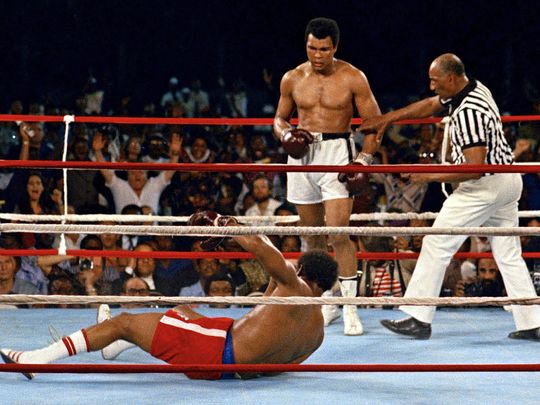Successful Nonprofit Arts Organizations, Like Successful Buildings, Depend on Successful Hierarchies
Level One:
Bricklayers. Carpenters. Stagehands. Electricians. Actors. Musicians. Painters. Singers. Writers.
Easy to find hacks. Difficult to find experts. Project-based.
Level Two:
Foremen. Department heads. Designers. Curators. Musical directors.
Small universe of successful ones. More skills required. Still project-based. Work toward a larger goal than Level One, namely a finished piece. Excellent collaboration skills.
Level Three:
Contractors. Directors.
Smaller universe still. Hire and manage Level One and Two (no requirement to perform at their skill level). Work toward a slightly larger picture, although still project based.
Level Four:
Architects. Executive/Artistic/General/Producing Directors.
Scarce universe of specialists. Determine “what.” Hire Level Three – several Level Threes, in fact. Understand projects, themes, and cohesion.
Level Five:
Owners. Boards.
Tiny, zealous universe. Hire Level Four. Determine “how.” Has personal stake.
Level Six:
The Community. The Mission.
Top of the hierarchy. Determines “why.”
Happy Dependence Day – In the USA, the Arts Reflect Our Need for Each Other
The American Dream is built on dependence (Independence Day and elections notwithstanding).
The USA is Blanche DuBois and the “kindness of strangers.” We’re Willy Loman. We’re Fanfare for the Common Man. Revelations. Hamilton. Smoke Signals. Angels in America. Our successes depend and are dependent on the joy, madness, and desires of others.
The monarchy doesn’t choose our art; we do.
American art depends not on individual brilliance, even though there are brilliant individuals. Our best art provides impact.
Mavericks provide almost no impact. Collaborations do.
Patrons deign to “provide for.” Supporters want to “identify with.”
True, there are Americans that call themselves mavericks and patrons. Some folks prefer their terminology shrouded in cobwebs.
But for the rest of us, we know what we are. Even better, we know why. Our best arts nonprofits reflect “We, the People.”
Nonprofit Arts Organizations Without Flexibility Present a Disconnect When It Really Matters
On September 12, 2001, we issued an internal memo at our nonprofit arts organization. We proffered the notion that standing by our programming and “moving forward” was the best way to fight back.
We were wrong. Putting on blinkers never helps.
On June 12, 2016, after one attack in Orlando and a foiled one in Santa Monica – key nonprofit arts organizations are right now readying memos rationalizing the same advice.
Move forward. That’ll show ‘em.
At what tipping point do we scrap activities to reflect the damage inflicted on people? Why must we wait for a year to see the first artistic responses? Why not now? Why worry about the production quality of said response? As nonprofits, when do we sacrifice our comfort zone to provide leadership to our communities for some resolution?
Or should we just move forward? Yet again?
Transformational Persuasion: Muhammad Ali, George Foreman, Donald Trump, Hillary Clinton, and Why It Matters – Especially When You’re Running an Arts Organization
Muhammad Ali died last week. A quote from a Zairian in “When We Were Kings.”
“George Foreman? We had heard he was a world champion.
We thought he was white, then we realized he was black, like Ali….
Ali said [about Foreman], you’re the out-of-towner here.”
Nonprofit leaders that manage organizations, programs, and people well can be quite successful. But not transformational. Transformational leaders effortlessly persuade with passion about the mission, not the statistics. Their material requires no script, just practice to remove the “ums” and “uhs.”
Trump, for example, vigorously (and effortlessly) transforms experienced opponents into “out-of-towners.” Clinton relies on effective policy, experience, and “being right.”
Passion KOs policy every time. Ask George Foreman.
Doesn’t your arts organization’s constituency deserve the most transformative experience you can offer? Or do you settle for production excellence and competence?
Special 2016 “Alan Harrison’s Birthday” Edition: Pack Up the Babies and Grab the Old Ladies – And an Easy-To-Fulfill Wish List

I was born on May 14. Conceived on a hot August night. Neil Diamond would’ve been proud. He was old enough to have a kid then, so…who knows? Brother Love? Are you my papa?
From him, I want flowers.
From you, I want (this is your cue):
- A 137-word card. ( <–Yes, that’s a link.)
- Share your favorite 137 Words post with your social network (that’s “share,” not “like”).
- To join a great company with a great mission. In Seattle.
- Health for The Kid.
- Guidance for The Kid.
- The love of my life to be happy, fulfilled, and curious. You know who you are.
- The ability for you to guide your favorite nonprofit to safety, security, and success.
- Brilliantly measurable missions, better than you believe you’re capable of.
- Complete, successful execution of those brilliant new missions.
- Pie, not cake.
Ils pétent plus haut que leur cul. Marketing Intellectual Pursuits to an Anti-Intellectual Public, Right-Cheer In These You-Nited States of Murrica
In the arts, we want to attract more people. Or do we just want more us?
We’re asked to produce vision, impact, and engagement. We embrace entertainment, but only if it’s at a 120+ IQ level. Even abject silliness on stage is only acceptable if it’s “smart.”
When another company produces an RSC script, they almost apologize in their marketing:
RSC: “it’s not the length of your history that matters – it’s what you’ve done with it!”
Other: “Between the rampant nationalism and the recent election, we think it more vital than ever for us to show we’re capable of laughing at ourselves. It, too, is part of the healing.”
Populism in the arts is an open path to success. Risk being fucking funny, not drolly meaningful.




